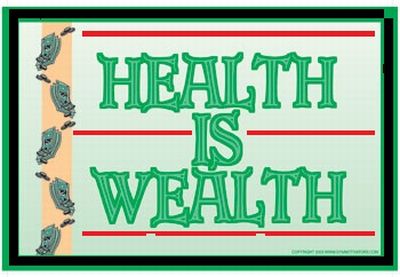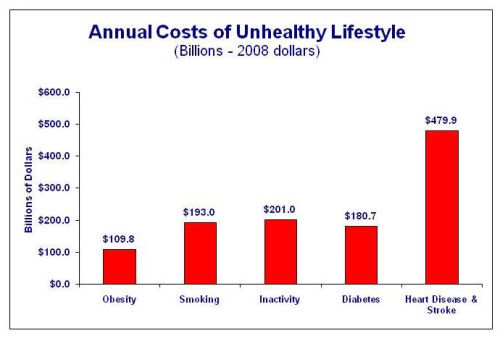The logical thing to do is improve your immunity so that you don’t catch anything in the first place.
Dietary Changes
As far as diet goes, the big three immune-knockers are wheat, cow dairy, and sugar. The real reason winter is known as flu season is probably because of the seasonal foods like cakes, pies, cookies, eggnog, and pastries that are loaded with those.
Wheat
It’s not commonly known that wheat can have adverse effect, but the high gluten levels in modern wheat products is linked to mild or severe allergic reactions in people. These reactions cause intestinal and systemic inflammations. Modern commercial wheat products are not fermented, have extra gluten added, use fast-rise yeast that cannot break down the complex starches in wheat, and come from a species of wheat grain that has far more gluten than what our ancestors originally ate. The info on wheat is out there, for example read this book review on the book Dangerous Grains.
The problem is that Celiac Disease is just the most severe type of reaction to wheat gluten, whereas a lesser condition is more common but tends to go undiagnosed. The condition is known as gluten sensitivity, which leads to symptoms that aren’t obviously linked to gluten being the problem. For instance, if it reduces your immunity and you catch a cold, how likely is it that you would realize that those dinner rolls you had this past weekend did it? So gluten sensitivity, even mild forms of it, is what I’m talking about here. Those with Celiac Disease ought to eliminate gluten entirely, while those with sensitivity can get by with greatly reducing their gluten intake. Please do further research on gluten sensitivity and Celiac disease to know what foods are okay to eat, if you suspect you have either.
If you do have to eat wheat bread, then the two safest types are 1) sprouted wheat bread (like the Ezekiel brand sprouted grains — but avoid the one made with soy beans) and 2) genuine sourdough bread. Real sourdough uses no fast-rise yeast and is given a long rise time in which the starches are broken down by the natural micro-organisms in the sourdough starter. This is closer to the kind of bread eaten before the advent of modern industrial bread making.
Instead of wheat, try going for rice, oats, and in lesser quantities potatoes. Other alternatives to wheat include quinoa, millet, buckwheat, and amaranth. Avoid white rice since it has very little nutrition and a high glycemic index (leads to sugar crash). Brown rice is better, provided it’s sprouted first.
Brown rice must be sprouted to eliminate the phytic acid that otherwise binds the minerals and keeps them from absorbing in your body. It’s easy, you just soak the rice a night or two before you cook it. To sprout, follow these instructions. The quickest way is to put long grain rice into a plastic container, fill with room-temperature water, soak for twelve hours, change water, soak for another twelve, then rinse and cook with slightly less water than usual. Lundberg Farms brown basmati rice works well for this. Faster method is to fill with warm water the night before, rinse the next morning, refill with room-temperature water, and then drain and cook that evening.
As for oats, avoid the flavored oatmeal packets, and instead get whole oats in rolled or steel-cut form, then add your own fat/salt/honey. Wheat-free rye breads like pumpernickel are alright, because although they contain gluten it’s less than the equivalent wheat bread. Potatoes are okay in moderation. In reduced quantities or frequency, rye and potatoes are fine as well.
Sugar
Sugar is fine in limited quantities, but beware larger quantities as found in soft drinks, cool-aid, fruit juices, cookies, cakes, and pastries. It’s the sugar crash you get an hour later that really kicks your immune system down. If you are going to do sugar, instead of white refined sugar, first reduce your overall intake of sugar by cutting out soft-drinks and cookies/cakes/pastries, and then use raw/brown sugar, maple sugar, or unpasteurized and unfiltered honey instead.
For non-calorie sweetener alternative there is white stevia powder. Agave nectar is not recommended since it is very high in fructose, which can overload the liver and turn into belly fat. Definitely avoid aspartame, Nutrasweet, Sweet-n-Low, Splenda, Truvia, and all the other artificial junk the chemical companies are trying to ram down our throats because these severely screw with our neurochemistry and/or digestive systems.
Dairy
Cow dairy has several problems: 1) high estrogen content in milk fat (means ovarian cancer for women, breast enlargement in males), 2) pus content from cows with infected udders, 3) lactose sugar which causes intestinal problems for some people, 4) casein protein which not everyone fully digests, causing undigested proteins to circulate in the blood and act as an opium mimicker which screws with brain chemistry and may aggravate autistic and schizophrenic symptoms, 5) pasteurization, which destroys the enzymes that would normally help us digest milk better, and 6) homogenization, which breaks fat globules up into little jagged particles that go rancid more easily. That’s what you get in modern commercial dairy.
If you do cow dairy anyway, then the safest type is organic skim milk. Butter is alright in small quantities, other than the high estrogen levels, so guys don’t go crazy with the butter unless you like a little more weight on your chests. Coconut oil and olive oil are great alternatives to butter. Goat milk and cheese is a decent substitute for regular milk, if you can get used to the goaty taste. Else, there is plain oat/rice milk, just watch out for some having lots of added sugar. Avoid soy milk since it has estrogen-mimickers that will interfere with hormones. Mainly it is cow cheese, cream cheese, sour cream, yogurt, and whole/2%/1% milk that cause the biggest problems. Best to reduce them to condiment-levels, and stick to alternatives for larger quantities.
Here is a list of the top food combinations to avoid, from the most damaging to the least damaging:
Wheat + Dairy + Sugar — Cheese cake, cream-filled donuts, cookies/cakes/pastries with milk, bagels with sweet cream cheese, ice cream with sugar or waffle cone, etc…
Wheat + Sugar — Cookies, cakes, muffins, pastries, pies, pancakes, waffles, etc…
Dairy + Sugar — Ice cream, eggnog, flavored yogurt, etc…
Sugar — Soft drinks, fruit juices, candy, milk chocolate, popsicles, especially anything with high fructose corn syrup, etc…
Wheat + Dairy — Pizza, cheese sticks, bread with cheese slice, sandwiches, etc…
Wheat — Bagels, pasta, bread, couscous, etc…
Fatted Dairy — Whole milk, cream cheese, fatty yogurt (even plain), cheese, sour cream, butter, etc…
Non-fat Dairy — Skim milk, nonfat plain yogurt, nonfat cottage cheese, etc…
The top three ought to ideally be eliminated altogether, and the rest used sparingly or in moderation. Everyone has different biology and metabolism, so it takes some fine tuning to settle in on the foods that give you energy. For most people, wheat, dairy, and sugar don’t have to be eliminated completely, just restricted. A little butter, a little cream in coffee, some wheat breading on chicken, and a little sugar added to stews or oatmeal are fine for most people. It’s mainly the larger quantities and combinations of two or three of the wheat, dairy, and sugar, that do a number on the immune system.
It’s also worth reducing caffeine intake since caffeine creates a stress-response in the body (adrenaline and cortisol increase) — anything over 30mg of caffeine per day is getting into health-negative territory, leading to fatigue, headaches, and rapid aging.
The best immune-supporting meals are those with low glycemic index (doesn’t cause sugar crash), that are low in wheat gluten, and have a neutral or alkalizing effect on body pH. Examples include split pea soup, sprouted brown rice fried up in coconut oil, chips and refried beans/guacamole, dark chocolate, soups/stews/chillis, sauerkraut, oatmeal with just a little butter and honey, fruit and nut mixes, apples, salads, fresh meat and fish, sauteed vegetables, and so on. Simple ingredients, minimally processed, maximum nutrient density.
As for supplements and the immune system, the major thing to watch out for is being deficient in zinc, B-vitamins, vitamin C, and vitamin D. Deficiencies in any of those will lower your immune system, therefore read up on deficiency symptoms and compensate as necessary. A good site for getting up to speed on nutrition is http://whfoods.com
And lastly, if you are concerned about the pharmaceuticals, fluoride, and chlorine in your water (which regular filters like Brita or Pur don’t remove), then the alternative is either getting a home Reverse Osmosis system (expensive), a distiller (takes lots of electricity), or cheapest is getting a 3 or 5 gallon water jug and refilling at the grocery store. Water so pure (reverse osmosis or deionized water) can have a de-mineralizing effect, so just add a 1/2 teaspoon of baking soda and 1/4 teaspoon No-Salt (potassium chloride) per 3 gallons of water to buffer the water a bit.


